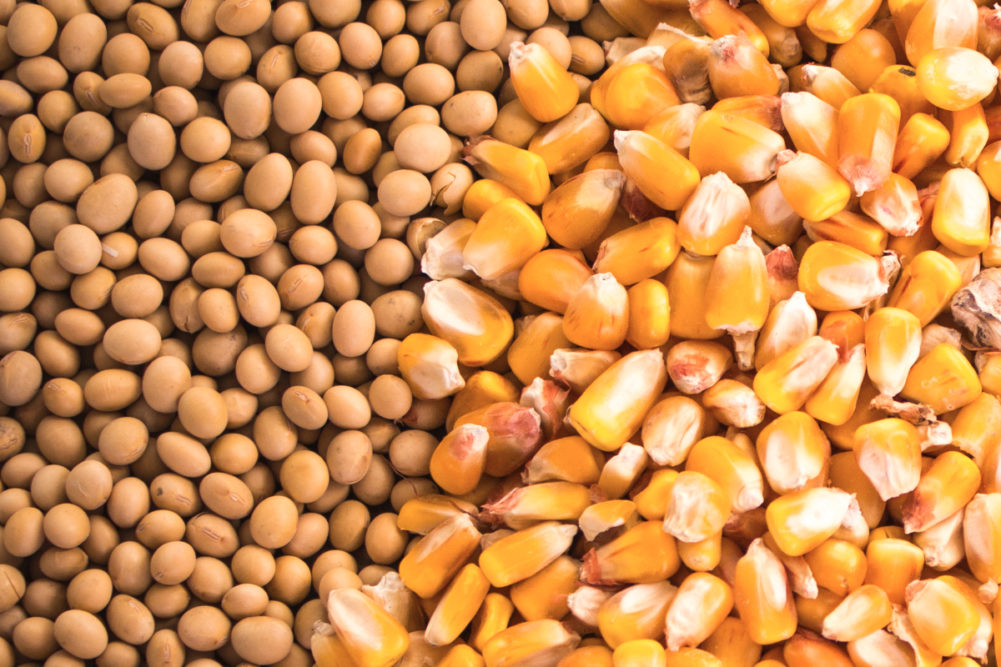WASHINGTON, DC, US — The US Department of Agriculture in its March World Agricultural Supply and Demand Estimates report left unchanged from February its US corn and soybean 2020-21 supply-and-demand projections. In each case, the trade had expected the USDA to lower ending stocks, at least minimally.
The USDA projected the US carryover of corn on Sept. 1, 2021, at 1.50 billion bushels, which would be down 417 million bushels, or 22%, from 1.92 billion bushels in 2020. The average of pre-report trade estimates was 1.47 billion bushels. If the USDA forecast is realized, the 2021 corn carryover would be the smallest since 1.23 billion bushels in 2014.
The 2020-21 corn supply was projected at 16.13 billion bushels, up 244 million bushels, or 2%, from 15.88 billion bushels in 2019-20.
Domestic corn use in 2020-21 was forecast at 12.03 billion bushels (5.65 billion bushels for feed and residual; 4.95 billion bushels for ethanol, and 1.43 billion bushels for other food, seed and industrial use), down 160 million bushels, or 1%, from 12.19 billion bushels in 2019-20.
The average farm price of corn in 2020-21 was forecast at $4.30 a bushel, unchanged from February and up 74¢, or 21%, from $3.56 a bushel in 2019-20.
The USDA forecast the US carryover of soybeans on Sept. 1, 2021, at 120 million bushels. The average of pre-report trade estimates was 117 million bushels. If the USDA projection is realized, the 2021 soybean carryover would be the smallest since 92 million bushels in 2014 and compared with 474 million bushels as the recent five-year average carryover.
The soybean crush for 2020-21 was forecast unchanged at a record 2.2 billion bushels, and soybean exports in 2020-21 were projected unchanged at a record 2.25 billion bushels.
The average farm price of soybeans in 2020-21 was forecast unchanged at $11.15 a bushel, up $2.58 a bushel, or 30%, from $8.57 a bushel in 2019-20.
The USDA said in relation to the farm price of soybeans, “Although current cash prices are significantly higher, prices received through January have averaged just over $10 per bushel, reflecting forward pricing at lower levels.”




